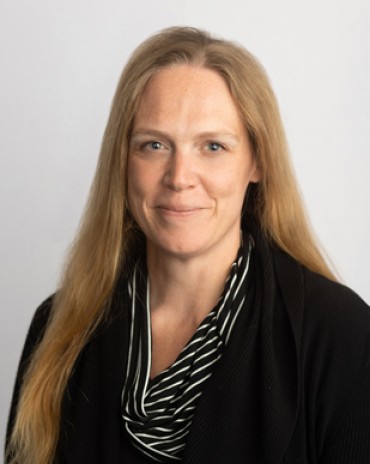Julianna Grabianowski

Assistant Professor of Business
Phone Number: 402.826.6712Department: Business Administration
Office: GA413
Email: [email protected]
Primary Campus: Crete
Credentials: PHD
Dr. Julianna Grabianowski is Assistant Professor of Business in the College of Business. She joined Doane University in 2018 and primarily teaches classes for the following programs: Business Administration, Human Resources Management and Management. She earned a Ph.D. in Human Capital Management (2016) from Bellevue University and an M.S. in Social Science (2007) from the University of Duisburg-Essen. Dr. Grabianowski holds certificates in Human Capital Leadership and Introduction to Management, Linking Human Capital to Organizational Outcomes, Strategic Human Capital Management & Productivity, and Measuring, Analyzing, and Assessing Human Capital Effectiveness. Some of her published topics include Improving Written Communication Skills in Business Education, Demonstrating Empathy while Exercising Accountability, and Servant Leadership.
Education
Ph.D. (Human Capital Management), Bellevue University, 2016
M.S. (Social Science), University of Duisburg-Essen, 2007
B.A. (Sociology), University of Duisburg-Essen, 2004
Courses
- Introduction to Human Resource Management (BUS 212)
- Management (BUS 242)
- Performance Management (BUS 314)
- Organizational Behavior (BUS 315)
- Contemporary Issues in Human Resource Management (BUS 361)
- Human Resources Strategy (BUS 418)
- Applied Management (BUS 455)
Professional Experience
Executive Director, Prairie Hill Learning Center, 2017-2019
Director of Operations and Finance, Malone Community Center, 2010-2017
Teaching Experience
Doane University, 2019-present
Bellevue University, 2016-present
Professional Accolades
Certificate in Measuring, Analyzing, and Assessing Human Capital Effectiveness; and Human Capital Leadership and Introduction to Management, Bellevue University, 2014
Certificate in Linking Human Capital to Organizational Outcomes; and Strategic Human Capital Management & Productivity, Bellevue University, 2013
Professional Highlights
- Grabianowski, J. (2016). Servant Leadership as a Lived Experience (Doctoral dissertation).
- Grabianowski, J., Okash, S., & Linenberger, S. (2017). R U 4 REAL? Improving Written Communication Skills in Business Education. International Accreditation Council for Business Education Annual Conference. San Francisco, CA.
- Grabianowski, J., & Linenberger, S. (2017). Theory to Practice: Applying Friedman's Theory of Differentiated Leadership in Management Studies. International Accreditation Council for Business Education Annual Conference. San Francisco, CA.
- Grabianowski, J. (2020). A Scholarly Exploration of a Practitioner’s Dilemma: Demonstrating Empathy while Exercising Accountability. International Leadership Association Conference. Virtual.
- Grabianowski, J. (2020). W(H)INE AT WORK – How Empathy is Overshadowing Accountability. Western Business and Management Association International Research Conference. Napa Valley, CA. Virtual.
- Saddler, A., Grabianowski, J., Ashley, G. (2020). Through the Lens of a Millennial: Opening the Aperture of Millennials’ views of Leaders. Journal of Behavioral and Applied Management.
- Grabianowski, J., & Linenberger, S. (2021). The Great Bridge: A Historical Case Study in Leadership Ethics. International Leadership Association Conference. Virtual.
How did you become interested in teaching?
I enjoy learning and enjoy inspiring others to be curious, inquisitive and develop a desire to learn more.
Why should I take your classes?
I design my classes in a way that enables a healthy blend of theory and practice while remaining consistent in expectations. I plan a theoretical part first, and then apply the learned material to the real world by offering examples from my work experience in the field, looking at case studies and applicable video clips, inviting guest speakers, and conducting "expert" interviews. To provide a healthy balance, the lower level classes will reflect more theory, and the higher level classes will tip the scale more toward praxis orientation. Throughout, I am expecting students to actively participate and contribute.
What is your teaching style?
I strive to take an active approach in making learning a fun, applicable, and engaging experience; inspire students to think critically, apply theory to real world situations, and motivate problem solving and creativity. Therefore, when visualizing my teaching philosophy on a continuum, it is closer positioned to the learning end than the teaching one. For someone to teach there has to be someone who learns, otherwise it is only a lecture. Learning needs to take place within both parties in order to develop and reach higher levels. To achieve this reciprocity, teaching has to be an integrated, meaningful, interactive, engaging, and structured process. It has to clarify constructs, create a basis for comprehension of the topic and ignite the desire to learn more and think critically."
